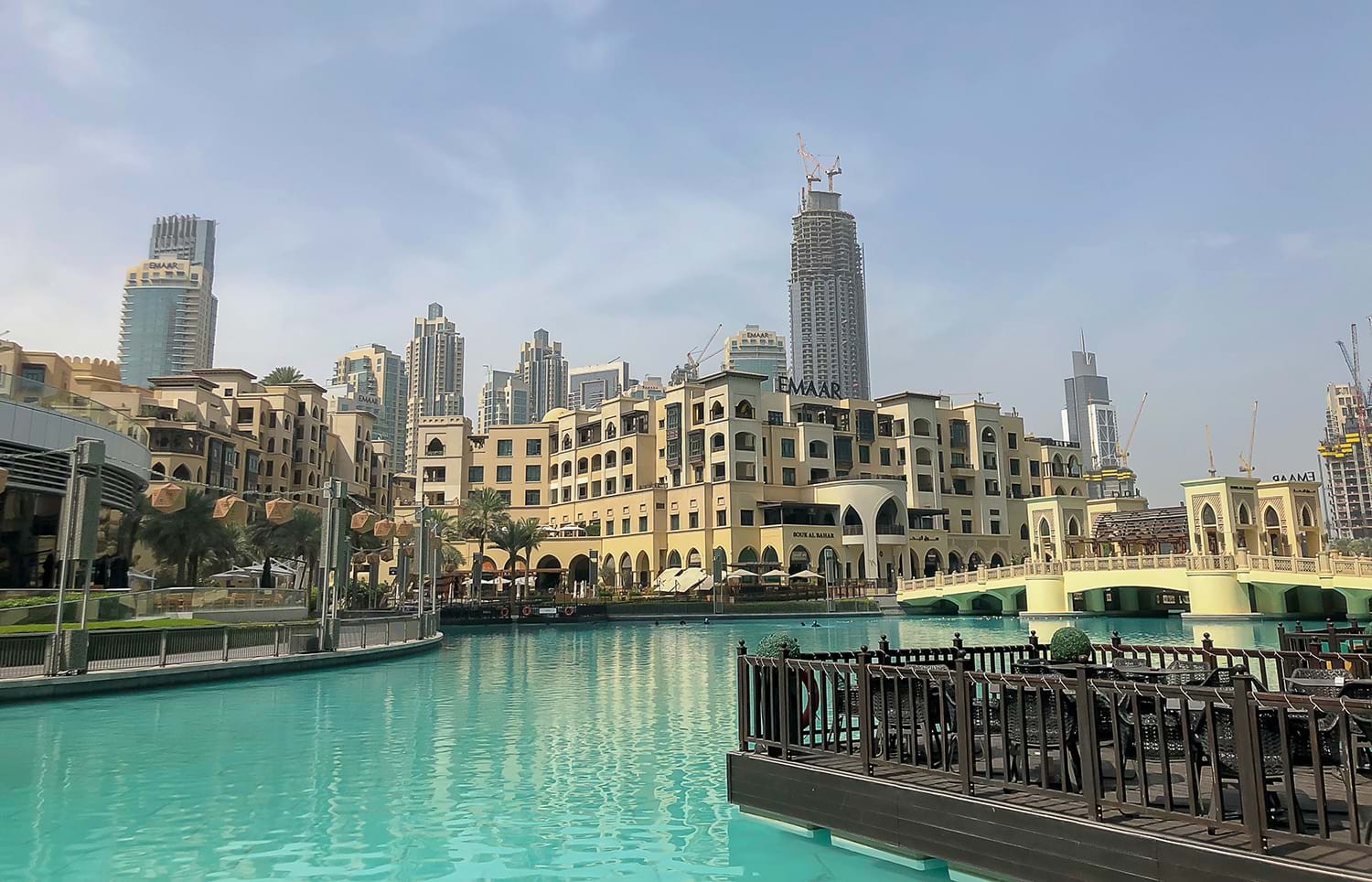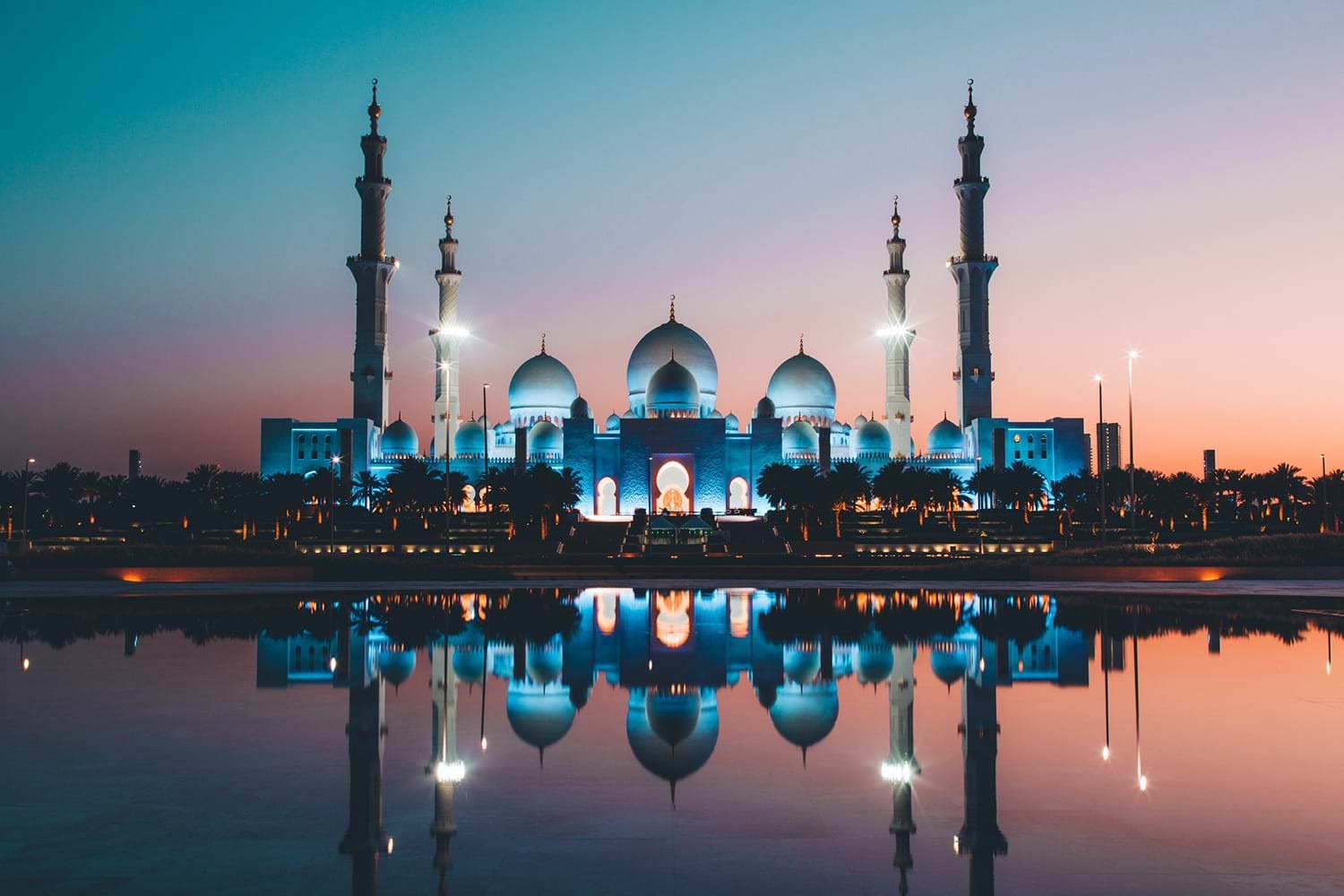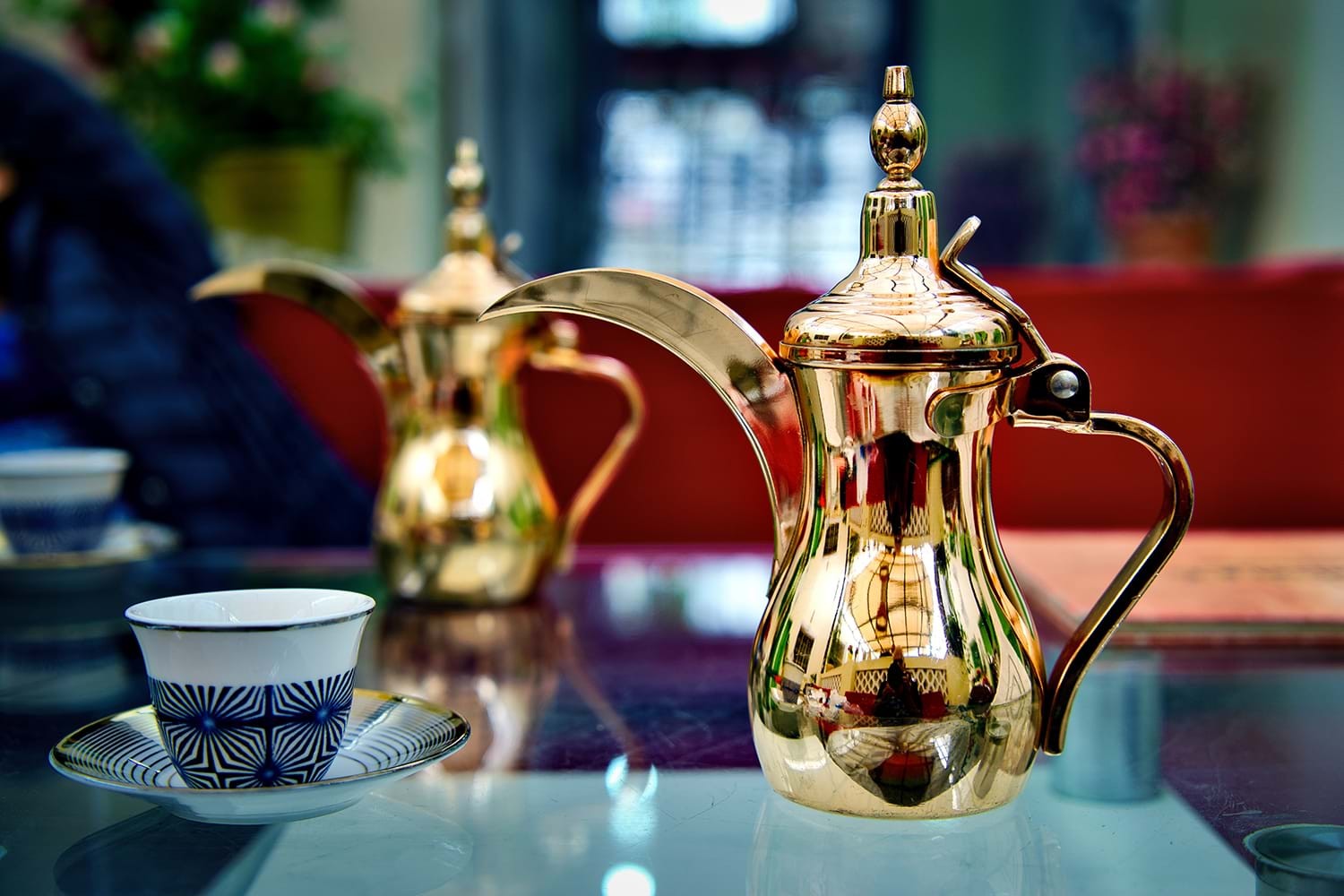Is It Safe To Travel To Dubai As A Woman? Absolutely! Dubai is generally safe for women travelers. TRAVELS.EDU.VN is here to guide you on ensuring a safe and unforgettable experience. With its modern infrastructure and strict laws, Dubai offers a secure environment but understanding local customs and taking certain precautions will enhance your safety and enjoyment. So come and plan your dream vacation with us to explore Dubai’s enchanting beauty, and you’ll find plenty of opportunities for adventure, relaxation, and cultural immersion.
1. Understanding Dubai’s Safety Landscape
Dubai has one of the lowest crime rates in the world, partly due to its strict law enforcement and advanced surveillance systems. The UAE government prioritizes the safety and security of its residents and visitors. According to the World Economic Forum’s 2017 Travel & Tourism Competitiveness Report, the UAE ranks among the safest countries globally. This commitment to safety creates a welcoming atmosphere for tourists, including women traveling alone.
1.1 What Makes Dubai Safe?
- Low Crime Rate: Dubai boasts a very low crime rate due to stringent laws and effective policing.
- Advanced Surveillance: Extensive CCTV coverage ensures public spaces are monitored.
- Cultural Respect: While conservative, there is a general respect for visitors and tourists.
- Economic Stability: High levels of employment and wealth reduce petty crime.
1.2 Common Misconceptions About Safety in Dubai
It is important to dispel a few common misconceptions about safety in Dubai.
- Misconception 1: Dubai is unsafe for women due to strict Islamic laws.
- Reality: While Dubai adheres to Islamic traditions, it is relatively liberal compared to other Middle Eastern countries, especially in tourist areas.
- Misconception 2: Solo female travelers are at high risk.
- Reality: Dubai is generally safe for solo female travelers, but awareness and caution are still advised.
- Misconception 3: Petty theft is rampant.
- Reality: Petty theft is relatively low, but it’s always wise to take precautions against pickpocketing and scams.
 Dubai cityscape at night with illuminated buildings and clear sky, highlighting its modern and safe environment
Dubai cityscape at night with illuminated buildings and clear sky, highlighting its modern and safe environment
2. Pre-Trip Planning for a Safe Journey
Effective pre-trip planning can significantly enhance your safety in Dubai. Start by understanding local laws and customs, and prepare your travel documents and emergency contacts.
2.1 Researching Local Laws and Customs
- Dress Code: Dress modestly in public places. While not mandatory, avoid overly revealing clothing.
- Public Behavior: Public displays of affection are frowned upon and can lead to legal issues.
- Alcohol Consumption: Alcohol is only permitted in licensed establishments like hotels and clubs. Public intoxication is illegal.
- Ramadan: During Ramadan, eating, drinking, and smoking in public during fasting hours are prohibited.
- Photography: Avoid photographing people without their permission, and never photograph government or military installations.
2.2 Essential Travel Documents and Contacts
- Passport and Visa: Ensure your passport is valid for at least six months beyond your stay and that you have the necessary visa.
- Copies of Documents: Keep digital and hard copies of your passport, visa, and travel itinerary in separate locations.
- Emergency Contacts: Save local emergency numbers (police, ambulance, fire) in your phone. Share your itinerary with family or friends.
- Embassy Information: Know the contact details of your embassy or consulate in Dubai.
2.3 Travel Insurance: A Must-Have
- Comprehensive Coverage: Choose a travel insurance plan that covers medical emergencies, trip cancellations, theft, and loss of personal belongings.
- Medical Coverage: Ensure your policy includes medical evacuation and repatriation.
- 24/7 Assistance: Look for a policy that offers 24/7 emergency assistance services.
3. Accommodation Safety Tips
Choosing the right accommodation is crucial for your safety and comfort. Opt for reputable hotels or serviced apartments in safe neighborhoods.
3.1 Selecting Safe Neighborhoods
- Downtown Dubai: Home to the Burj Khalifa and Dubai Mall, this area is well-lit, heavily policed, and bustling with tourists.
- Dubai Marina: Known for its upscale residences, restaurants, and waterfront promenade, it’s a safe and vibrant area.
- Jumeirah: A residential area with beautiful beaches, boutique shops, and cafes, offering a more relaxed and secure environment.
3.2 Hotel Safety Measures
- Reputable Hotels: Choose well-known hotel chains with good reputations for security.
- Secure Rooms: Ensure your room has a secure lock, a peephole, and a safety deposit box.
- Emergency Procedures: Familiarize yourself with the hotel’s emergency procedures and evacuation routes.
- Room Service: Utilize room service instead of venturing out late at night.
3.3 Airbnb and Vacation Rentals: Precautions
- Verified Hosts: Only book with verified hosts who have positive reviews.
- Read Reviews: Pay close attention to reviews regarding safety and security.
- Communication: Communicate with the host through the Airbnb platform to keep a record of your interactions.
- Safety Checks: Before settling in, check that the property has working smoke detectors, carbon monoxide detectors, and secure locks.
 Luxurious hotel room in Dubai with a view of the skyline, emphasizing secure and comfortable accommodation
Luxurious hotel room in Dubai with a view of the skyline, emphasizing secure and comfortable accommodation
4. Transportation Safety in Dubai
Dubai offers various transportation options, each with its own safety considerations. Understanding these can help you navigate the city securely.
4.1 Public Transportation: Metro, Buses, and Trams
- Dubai Metro: The Dubai Metro is modern, clean, and efficient. It is generally safe, with CCTV surveillance and dedicated women’s compartments.
- Dubai Buses: Buses are a cost-effective way to get around. They are usually crowded during peak hours but are generally safe.
- Dubai Tram: The tram connects with the metro and bus networks, providing convenient access to areas like Dubai Marina and Jumeirah Beach Residence.
4.2 Taxis and Ride-Sharing Services
- Official Taxis: Use only official Dubai taxis, which are metered and regulated. You can easily spot them by their cream color and company logos.
- Ride-Sharing Apps: Uber and Careem are popular ride-sharing services in Dubai. They offer convenience and traceability, but always verify the driver’s identity before getting in.
- Female Drivers: Both Uber and Careem offer options to request female drivers, providing an added layer of comfort for some women travelers.
4.3 Renting a Car: Tips for Safe Driving
- Valid License: Ensure you have a valid international driving permit and your local driver’s license.
- Traffic Laws: Familiarize yourself with local traffic laws and regulations.
- Road Conditions: Dubai has excellent road infrastructure, but be cautious of speeding drivers.
- Parking: Use designated parking areas and avoid parking in restricted zones.
5. Navigating Public Spaces Safely
Being aware and cautious in public spaces can help prevent potential issues. This includes dressing modestly, being mindful of your surroundings, and knowing how to handle unwanted attention.
5.1 Dressing Modestly: What to Wear
- General Guidelines: While there are no strict rules for tourists, dressing modestly shows respect for local culture.
- Public Areas: Avoid wearing overly revealing clothing in public spaces, such as malls, parks, and markets.
- Religious Sites: When visiting mosques or religious sites, dress conservatively, covering your shoulders, arms, and legs. A headscarf may also be required.
- Beaches and Pools: Swimwear is acceptable at beaches and hotel pools, but avoid wearing it in public areas away from these locations.
5.2 Avoiding Unwanted Attention
- Body Language: Maintain a confident and assertive demeanor. Avoid making prolonged eye contact with strangers.
- Walking Alone at Night: If possible, avoid walking alone at night, especially in less crowded areas.
- Ignoring Comments: If you receive unwanted attention or comments, ignore them and move away. Do not engage in conversation.
- Seeking Assistance: If you feel threatened or uncomfortable, seek assistance from security personnel, police officers, or shop staff.
5.3 Staying Alert and Aware
- Surroundings: Pay attention to your surroundings and be aware of who is around you.
- Valuables: Keep your valuables secure and out of sight. Use a cross-body bag or money belt.
- Trust Your Instincts: If a situation feels unsafe, trust your instincts and remove yourself from the situation.
- Emergency Contacts: Keep emergency contact numbers readily available in your phone.
6. Social Interactions and Cultural Sensitivity
Understanding and respecting local customs is crucial for a positive experience in Dubai. This includes being mindful of social interactions and cultural norms.
6.1 Greetings and Interactions with Locals
- Respectful Greetings: When greeting someone, use a polite and respectful tone. A simple “hello” or “good evening” is appropriate.
- Physical Contact: Avoid initiating physical contact, such as handshakes, with members of the opposite gender, unless they initiate it first.
- Public Displays of Affection: Public displays of affection, such as kissing or hugging, are not permitted and can lead to legal consequences.
- Ramadan Etiquette: During Ramadan, be especially respectful of those who are fasting. Avoid eating, drinking, or smoking in public during fasting hours.
6.2 Dining Etiquette
- Eating with Hands: In traditional settings, food may be eaten with the right hand. If using utensils, use your right hand to hold them.
- Sharing Food: If sharing food, offer it to others before serving yourself.
- Alcohol Consumption: Alcohol is only served in licensed establishments. Be mindful of your consumption and avoid public intoxication.
- Tipping: Tipping is not mandatory, but it is customary to leave a 10-15% tip for good service.
6.3 Visiting Religious Sites
- Dress Code: When visiting mosques or religious sites, dress conservatively, covering your shoulders, arms, and legs. A headscarf may be required for women.
- Silence: Maintain silence and respect inside religious sites.
- Photography: Ask for permission before taking photographs inside religious sites.
- Prayer Times: Be aware of prayer times and avoid visiting during these times.
 Woman in Dubai wearing traditional clothing while visiting a mosque, representing respect for local customs
Woman in Dubai wearing traditional clothing while visiting a mosque, representing respect for local customs
7. Health and Medical Safety
Ensuring your health and medical safety is a key part of planning a safe trip to Dubai. This includes understanding healthcare services, vaccinations, and emergency procedures.
7.1 Healthcare Services in Dubai
- High-Quality Healthcare: Dubai offers high-quality healthcare services with modern facilities and well-trained medical professionals.
- Private Hospitals: Private hospitals are widely available and offer a range of medical services.
- Pharmacies: Pharmacies are easily accessible and well-stocked with prescription and over-the-counter medications.
- Health Insurance: Ensure your travel insurance policy covers medical expenses in Dubai.
7.2 Vaccinations and Health Precautions
- Recommended Vaccinations: Check with your doctor regarding recommended vaccinations for travel to Dubai.
- Heat Precautions: Stay hydrated by drinking plenty of water, wear sunscreen, and avoid prolonged exposure to the sun.
- Food Safety: Eat at reputable restaurants and avoid street food to minimize the risk of foodborne illnesses.
- Mosquito Prevention: Use mosquito repellent to protect against mosquito bites, especially during the evenings.
7.3 Emergency Medical Procedures
- Emergency Numbers: Save local emergency numbers (police, ambulance, fire) in your phone.
- Medical Facilities: Know the location of the nearest hospitals and medical facilities.
- Medical Information: Carry a card with your medical information, including any allergies, medical conditions, and medications you are taking.
- Contacting Insurance: Know how to contact your travel insurance provider in case of a medical emergency.
8. Safety Tips for Specific Activities
Dubai offers a wide range of activities, from desert safaris to water parks. Understanding the safety measures for each activity can help you enjoy them without risk.
8.1 Desert Safaris
- Reputable Tour Operators: Book desert safaris with reputable tour operators who prioritize safety.
- Safety Equipment: Ensure the tour operator provides safety equipment, such as seat belts and helmets.
- Health Precautions: Stay hydrated and wear sunscreen to protect against the heat.
- Medical Conditions: Inform the tour operator of any medical conditions before participating in the safari.
8.2 Water Parks and Beaches
- Lifeguards: Swim only in designated areas with lifeguards present.
- Supervision: Supervise children closely at all times.
- Sun Protection: Apply sunscreen regularly and wear protective clothing, such as a hat and sunglasses.
- Hydration: Drink plenty of water to stay hydrated in the heat.
8.3 Shopping and Markets
- Valuables: Keep your valuables secure and out of sight.
- Bargaining: Be cautious when bargaining and avoid showing large amounts of cash.
- Crowded Areas: Be aware of your surroundings in crowded areas and watch out for pickpockets.
- Fake Goods: Be cautious of counterfeit goods and only purchase from reputable vendors.
9. Legal Considerations and Emergency Contacts
Knowing your legal rights and having access to emergency contacts can provide peace of mind during your trip.
9.1 Understanding Your Legal Rights
- Local Laws: Familiarize yourself with local laws and regulations.
- Legal Assistance: Know how to access legal assistance if needed.
- Reporting Crimes: Know how to report a crime to the local authorities.
- Consular Assistance: Understand the services provided by your embassy or consulate in Dubai.
9.2 Important Emergency Contacts
- Police: 999
- Ambulance: 998
- Fire: 997
- Tourist Police: 800 4438
9.3 Embassy and Consulate Information
- U.S. Embassy in Abu Dhabi: +971 2 414 2200
- U.S. Consulate General in Dubai: +971 4 309 4000
- British Embassy in Dubai: +971 4 309 4444
- Canadian Embassy in Abu Dhabi: +971 2 694 0300
10. Why Choose TRAVELS.EDU.VN for Your Dubai Trip
TRAVELS.EDU.VN offers unparalleled advantages for planning your Dubai adventure. Our expert guidance, tailored services, and commitment to your safety ensure a seamless and memorable experience.
10.1 Expert Travel Planning
- Customized Itineraries: TRAVELS.EDU.VN creates personalized itineraries that cater to your interests and preferences.
- Local Knowledge: Our team has extensive knowledge of Dubai, ensuring you experience the best the city has to offer.
- 24/7 Support: We provide round-the-clock support to assist you with any issues or concerns during your trip.
10.2 Safety and Security Assurance
- Safe Accommodation: We partner with reputable hotels and serviced apartments in safe neighborhoods.
- Reliable Transportation: We arrange for reliable and safe transportation options, including official taxis and vetted ride-sharing services.
- Emergency Assistance: We provide emergency assistance and support to ensure your safety and well-being.
10.3 Exclusive Deals and Offers
- Competitive Pricing: TRAVELS.EDU.VN offers competitive pricing on flights, accommodation, and activities.
- Exclusive Deals: We provide access to exclusive deals and offers, helping you save money on your trip.
- Value-Added Services: We offer value-added services, such as airport transfers and travel insurance, to enhance your travel experience.
Ready to explore Dubai with confidence? Contact TRAVELS.EDU.VN today to start planning your safe and unforgettable journey!
Contact Information:
- Address: 123 Main St, Napa, CA 94559, United States
- WhatsApp: +1 (707) 257-5400
- Website: TRAVELS.EDU.VN
FAQ: Is It Safe to Travel to Dubai as a Woman?
1. Is Dubai safe for solo female travelers?
Yes, Dubai is generally considered safe for solo female travelers. The city has a low crime rate, and the government prioritizes the safety and security of its visitors. However, it’s always wise to take precautions and be aware of your surroundings.
2. What should women wear in Dubai to respect local customs?
While there are no strict dress code requirements for tourists, it’s advisable to dress modestly in public places. Avoid overly revealing clothing and opt for outfits that cover your shoulders and knees. When visiting religious sites, dress conservatively, covering your head, arms, and legs.
3. Are public displays of affection acceptable in Dubai?
No, public displays of affection are not permitted in Dubai and can lead to legal consequences. It’s best to avoid kissing, hugging, or holding hands in public places.
4. Is it safe to use public transportation in Dubai?
Yes, public transportation in Dubai, including the metro, buses, and trams, is generally safe. The Dubai Metro has dedicated women’s compartments, providing an added layer of comfort for female travelers.
5. How can I avoid unwanted attention in Dubai?
To avoid unwanted attention, maintain a confident demeanor, avoid making prolonged eye contact with strangers, and ignore any unwanted comments or advances. If you feel threatened, seek assistance from security personnel or police officers.
6. What should I do in case of a medical emergency in Dubai?
In case of a medical emergency, call the local emergency number (998 for ambulance) and seek medical assistance at one of Dubai’s high-quality hospitals or medical facilities. Ensure your travel insurance policy covers medical expenses in Dubai.
7. Is it safe to rent a car and drive in Dubai?
Yes, it is generally safe to rent a car and drive in Dubai. The city has excellent road infrastructure, but be cautious of speeding drivers. Ensure you have a valid international driving permit and familiarize yourself with local traffic laws.
8. What are some safe neighborhoods to stay in Dubai?
Some of the safest neighborhoods to stay in Dubai include Downtown Dubai, Dubai Marina, and Jumeirah. These areas are well-lit, heavily policed, and bustling with tourists.
9. How can TRAVELS.EDU.VN enhance my safety in Dubai?
travels.edu.vn offers expert travel planning, customized itineraries, safe accommodation options, reliable transportation arrangements, and 24/7 support to ensure your safety and well-being throughout your Dubai trip.
10. What should I do if I encounter a legal issue in Dubai?
If you encounter a legal issue in Dubai, contact your embassy or consulate for assistance. They can provide guidance on local laws and regulations and help you access legal assistance if needed.